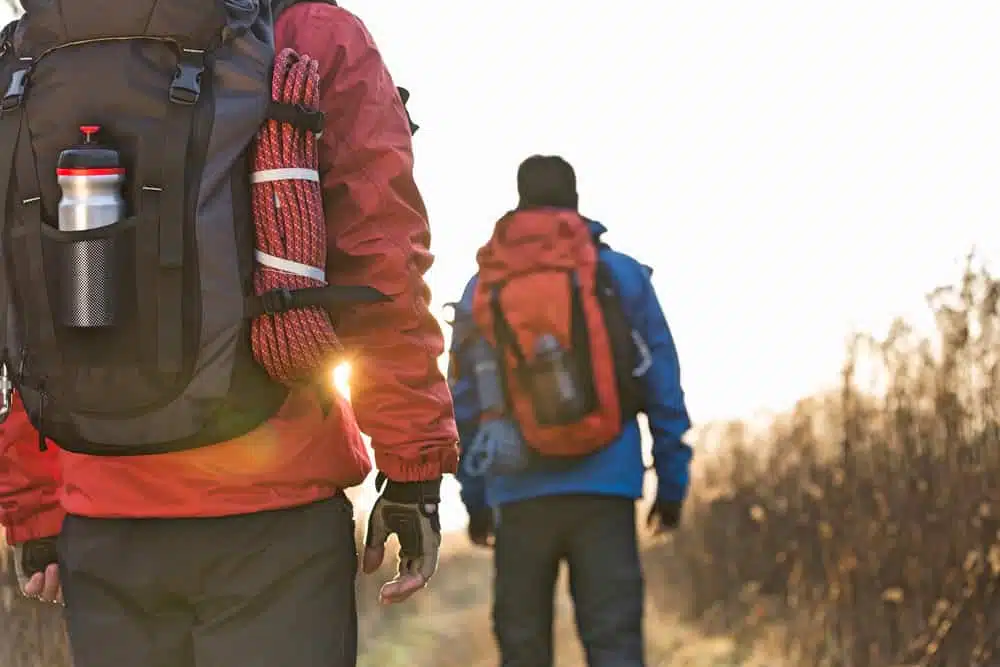More national parks and private campgrounds installing EV charging stations is a “very telling” sign that there is starting to be a shift towards a more sustainable mindset, as per Erin Levine, the resource and recovery manager at World Centric.
Still, the avid camper from California believes that more campers, campgrounds, organizations, and legislators should participate in the movement for sustainability.
“I would describe sustainable camping as being mindful of your impact,” Levine told Modern Campground.
“In every aspect, from the gear you bring to the activities you do beforehand—really fully preparing, so you can leave no trace, so you can completely respect all of the natural surroundings and environment when you’re in nature,” she added.
Levine comes from the commercial composting industry and has been involved with resource recovery for 17 years. Her push for environmental causes continues today as she shares some tips that campers can use when out in nature.
Campers practicing sustainability usually have a strong love of nature, seeking to unplug and reconnect with the natural world. Yet, Levine emphasized that those not fully engaged with the practice can start with baby steps such as bringing refillable water bottles or enough water that would last for the weekend. She said that reducing the plastic water bottles they bring is an easy switch that can make a significant impact.
Meal prepping is also another way to practice sustainability. For Levine, It also improves the camping experience as “I’m getting more time in nature because I’m not sitting there preparing food for a long time.”
The advocate said that wrapping food in beeswax or using reusable silicone bags are good ways to practice waste reduction and prevention. Moreover, zero-waste meal prep guarantees that food scraps are getting composted.
“I hope that more people can get on board, especially campers. I feel like if you are intending to go out into nature [or] into the wild, [and] enjoy the beauty that exists and that great outdoors, then you should just simply be more respectful of your surroundings and try not to bring anything unnecessary,” she said.
Other ways to be sustainable are opting for used or borrowed camping gear, using rechargeable batteries for flashlights, bringing solar-powered chargers, and using biodegradable soap.
Ultimately, the best way for campers to do their part is to advocate for more environmentally friendly options, Levine said.
Campgrounds can also help encourage eco-friendly camping and integrate healthier habits into their campgrounds.
It does not have to be installing EV chargers or going solar right away, but they can start by providing proper waste disposal bins. In doing so, campground operators can label the bins to designate and properly communicate proper waste disposal.
Furthermore, having a community garden and offering water refilling stations will help draw more conscious campers.
They can also offer more sustainable products such as bamboo toothbrushes, toothpaste pods, or plant-based compostable packaging. Levine shared that World Centric is looking into organizing discussions with the National Parks Service to talk about ways they can encourage sustainability in national parks.
Governing bodies also play a major role, she said.
“I might be looking out of one eye, but I have a strong feeling that with more regulatory involvement—so like more legislation and more interest in just sustainability as a whole—that’s the direction that every industry is going,” the advocate told Modern Campground.
With the climate crisis looming, Levine said that the best time to begin practicing a sustainable lifestyle is now.
Over a thousand scientists worldwide protested last week to call for help in addressing climate change, following a report by the Intergovernmental Panel on Climate Change (IPCC), warning that humans only have three years to cut greenhouse gas emissions to avoid climate catastrophes.
“We don’t really have time to waste. And with the state of the climate crisis right now, it needs to stop. I mean, the wastefulness, all the practices, and choices we make relating to product consumption, food consumption, and waste management,” she said.
“I mean, these are all deep considerations that every person should make, and camping should be a great way to do it. If you don’t do it in your everyday life, you should consider it when you go out into nature,” she added.




Ready for some awesome camping tips? Consider adding solar-powered gear to your setup for a more sustainable adventure. And hey, don’t forget to leave no trace behind – pick up any litter you find. Let’s keep our campgrounds clean for everyone to enjoy!